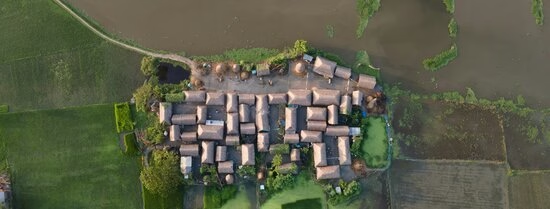| Themes | climate change adaptation; nature-based solutions; circularity; sustainable development; digital transition |
| Client | European Commission - Horizon Europe |
| Consortium Members | Led by Ethnicon Metsovion Polytechnion (NTUA) from Athens, Greece, the consortium is composed of 27 universities and organisations in 9 countries. These are: Acea Ato 5 SpA (Italy), Akti Kentro Meleton ke Ereynas (Cyprus), Athienou Dimos (Cyprus), Bioazul SL (Spain), Break-Even Symvouleftiki IKE (Greece), Core Kentro Kainotomias AMKE (Greece), Dimos Dytikis Lesvou (Greece), Dimos Skiathou (Greece), Dimotiki Epicheirisi Ydrefsis - Apochetefsis Skiathou (Greece), Diputacion Provincial de Malaga (Spain), Energy and Water Agency (Malta), Erevnitiko Panepistimiako Institouto Systimaton Epikoinonion kai Ypologiston (Greece), Fraunhofer Gesellschaft zur Förderung der Angewandten Forschung e.V. (Germany), Fundacion CIRCE Centro de Investigacion de Recursos y Consumos Energeticos (Spain), Fundacion Tecnalia Research & Innovation (Spain), Imperial College of Science, Technology and Medicine (United Kingdom), Institute for Housing and Urban Development Studies BV (Netherlands), Iridra SRL (Italy), Oxfordshire County Council (United Kingdom), Pohjos Suomen Biokaasu Oy (Finland), Pudasjärven Kehitys Oy (Finland), Ranuan kunta (Finland), Teknologian Tutkimuskeskus VTT Oy (Finland), Thames21 Limited (United Kingdom), Universiteit Utrecht (Netherlands), Ydraspis EE (Greece) |
| Duration | 1 October 2025 - 31 March 2030 |
| Countries | Greece, Cyprus, Finland, United Kingdom, Spain, Italy, Germany, Netherlands and Malta |
| IHS Contact | Elena Marie Enseñado; Charmae Pyl Wissink- Nercua; Pamela Durán-Díaz; Qian Ke; Carolina Lunetta; Abbie Arcena |

About the project
NURISH (NURturing transformative capacities, Innovation in nature-based Solutions, and Harmonious resilience in rural areas) aims to foster the transformative transition of rural areas toward climate-resilient and regenerative futures. The project promotes sustainable development by advancing community-building, economic innovation, multilevel governance, and climate adaptation planning rooted in regenerative principles.
Through a structured approach to climate adaptation, knowledge exchange, and innovation adoption, NURISH will facilitate the implementation and transfer of regenerative solutions. Its strategic goals are twofold: 1) to empower communities to address climate risks, using the Regenerative Rural Resilience Framework (RRRF), and (2) to guide the reapplication of tested solutions and the RRRF methodology in other rural communities through the Reapplication Framework (RAF).
How is the project organised?
At its core, NURISH is a dynamic knowledge transfer network composed of Resilience Hubs (RHs) and Resilience Nodes (RNs) that foster collaborative innovation in Nature-Based Solutions (NBS) and digital tools. Through a community-centric approach, NURISH supports the co-creation of tailored, circular, and adaptive solutions for rural resilience.
Spanning four RHs and five RNs across Europe, the network integrates learning, experimentation, and knowledge exchange. The Resilience Hubs act as Living Labs, demonstrating NURISH’s four pillars:
- Empowering skills and capacities
- Co-created systemic change
- Transformative nature-based innovation and nature-based economy
- Digital tools for regenerative rural resilience.
These hubs test and showcase how training, community engagement, and technology can be integrated to tackle climate risks and develop adaptive strategies. The Resilience Nodes, in turn, adapt and reapply this knowledge within their local contexts, ensuring the wider replication and impact of NURISH solutions across rural regions.
The role of IHS
IHS leads Work Package 2: Design and consolidation of project specifications, which focuses on developing comprehensive community profiles, mapping stakeholders and capacity-building needs, conducting risk assessments, and defining the technical specifications for user-friendly digital tools to support the implementation and monitoring of NbS.
In addition, IHS contributes to several other key work packages:
- WP4: Capacity building and skills development for rural communities
- WP5: Co-creation of NBS with rural communities
- WP8: Building future-oriented resilience through community participation and impact assessment
Through these roles, IHS supports the integration of participatory approaches, knowledge exchange, and academic and practical tools to enhance rural resilience and climate adaptation.

